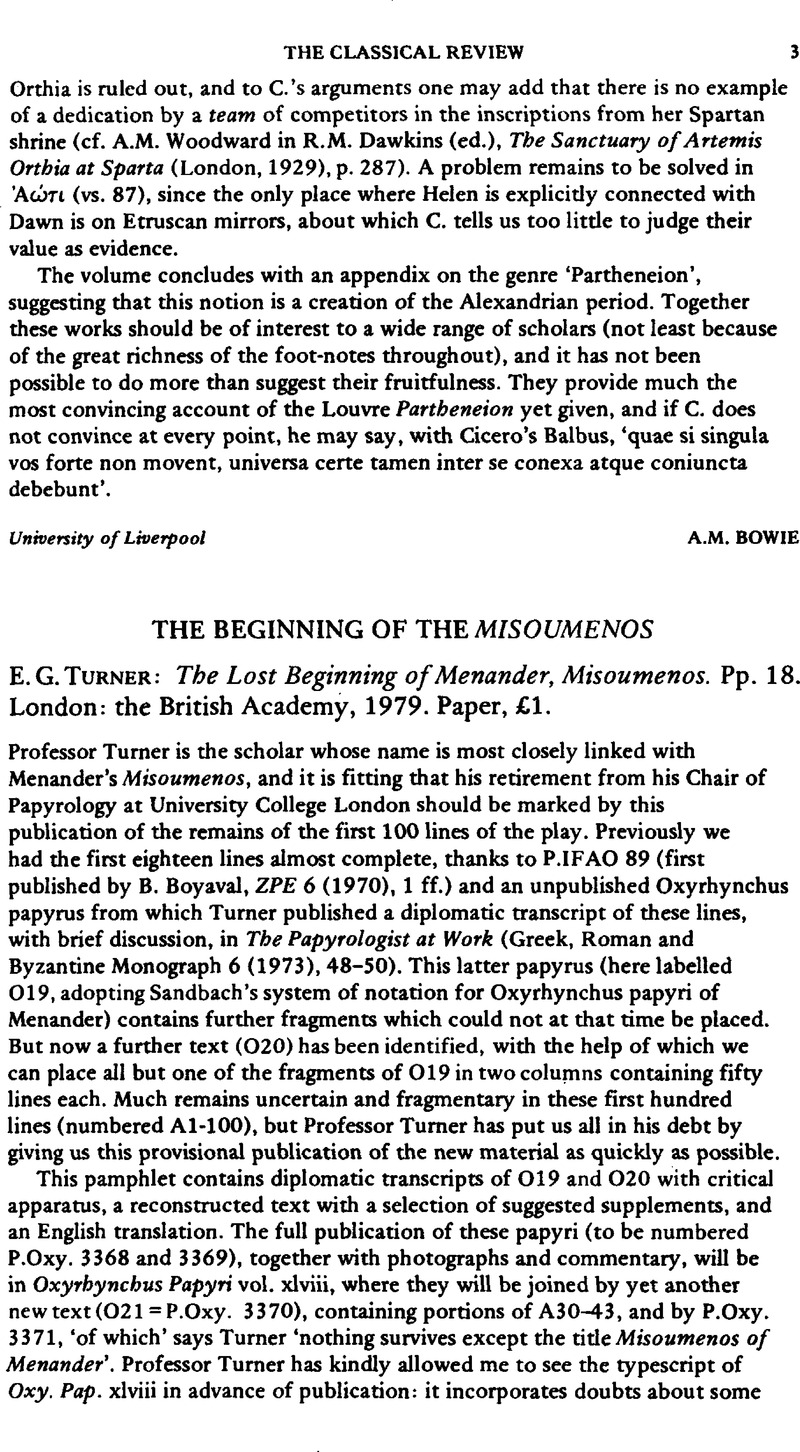No CrossRef data available.
Article contents
The Beginning of the Misoumenos - E. G. Turner: The Lost Beginning of Menander, Misoumenos. Pp. 18. London: the British Academy, 1979. Paper, £1.
Published online by Cambridge University Press: 27 February 2009
Abstract

- Type
- Reviews
- Information
- Copyright
- Copyright © The Classical Association 1980
References
1 Treu, U., ZPE 14 (1974), 175–177Google Scholar, argues from the context of Mis. Fr. 2S in Clem. Alex. Strom. 2.15.64.2 = II p. 147.16 f. Stahlin that Thrasonides has killed Krateia's brother, who was a friend of his, but in ignorance of his identity. But Clement quotes the fragment to illustrate the effect of tniBuula, and it seems fanciful to link it to what he has earlier said aboutἀπιθυμἰα. Nor do I like the idea that it Mis. 431διδόαϲί ϲοι γυναῖκα Krateia could be included in the subject as well as being the object of the verb (ibid. 176 n.2). T.B.L. Webster's suggestion (GRBS 14 (1973), 293 f.) remains the most convincing.
2 Austin suggests αὐτἡν.I see some advantage in separatingπριάμενοϲfrom the other participles, but of course we can only guess at the supplement here.
3 At Samia 649–59 it is a slave who uses the expression τὴν οἰκίαν | τὴν ἡμετέραν; but earlier in that play free men have used such phrases as παρ' ήμῖν, πρόϲ (38, 40, 425, 438; cf. Knemon at Dysk. 167–8, 482). Whoever says these words, this is a detail about the play which we had not previously known.
4 If Getas is the speaker of A33 ff., he can turn to Thrasonides at A36 with τί δέ τό[λִυποῦνϲʹ, a reading suggested by Turner in Oxy. Pap. xlviii (on P.Oxy. 3370).
5 Austin tells me that Sandbach has suggestedμόνον ἥν ό]ρᾶν, ‘talk to you in private’.
6 Dem. 54.8–9, 14 provides an interesting commentary on the Alexis fragment, and is evidence for such behaviour by drunken young men in Athens quite close to the time of Menander (as Professor Dover points out to me). The chorus is said to consist of drunken young men on its first entry at Epitr. 169–171, Perik. 261, and is regularly drunk and best avoided in Menander (cf. Aspis 245–8, Dysk. 231–2). My suggestion might be more tempting if line 7 of Fr. C hadτούϲδεand not τ]οὸτουϲ, as Oliver Taplin has pointed out (cf. Dysk. 231 τοὐϲδε, Aspis 247 τουτονί)




